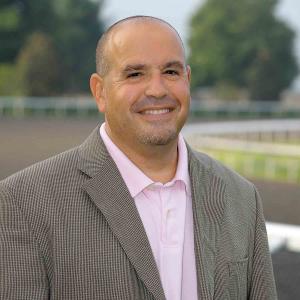 Posted: Dec. 12, 2016
Posted: Dec. 12, 2016
Uniformity? Yes.
Centralized rule-making? Yes.
Hiring a private entity? Acceptable.
Oversight by state government? Yes.
Oversight by the federal government? No.
Such were the results—hardly unexpected—from an online survey and more than 25 focus groups conducted by the Association of Racing Commissioners International to solicit opinions on the preferred path forward for equine medication and drug-testing regulation in the United States. The ARCI said it received input from 3,000 people, 80% of which indicated the lack of uniform rules and inconsistent penalties are a “problem” or “big problem” for horse racing.
The regulatory umbrella group with an obvious stake in protecting state regulation also said the survey results suggest 68% prefer creation of a central rule-making authority, and that 92% “could live with” that approach. Of those who support a private entity handling “anti-doping” policy under the central rule-making authority, 87% found it “unacceptable” for the entity to report to a federal agency. But 73% believe the private entity must be accountable to the government: state government or a multi-jurisdictional interstate compact.
The concept of an interstate compact for horse racing is hardly new. The ARCI board in 2009 endorsed creation of a compact, which requires each member state to pass legislation authorizing participation, but more than seven years later there has been very little if any movement.
Will broad support for it suddenly come out of hiding in 2017? The ARCI said that, in the wake of the survey, it is facilitating a meeting of industry leaders to develop a consensus on the route to take, so perhaps a compact will be endorsed—yet again.
(If you’re interested, the Council of State Governments has on its website a pretty good overview of how interstate compacts operate.)
The Thoroughbred Horsemen’s Association has been reluctant to support an interstate compact in part because getting even most racing states to adopt it is a tall order. In addition, the THA believes there are viable options such as the National Uniform Medication Program and using simulcast contracts to force the issue in non-compliant states, a concept offered by New York THA President Rick Violette Jr.
In the case of equine medication, a compact could in theory facilitate adoption of model rules in member states in which even the simplest change may require legislative approval rather than adoption by reference. Compact members could, for instance, agree to hire an independent entity such as the United States Anti-Doping Agency to coordinate drug testing and enforcement, but there is hardly industry consensus on that proposal.
The ARCI release on the survey results didn’t specifically mention the Thoroughbred Horseracing Integrity Act of 2015, which was introduced in the U.S. House of Representatives earlier this year and now has 87 co-sponsors, according to congress.gov, but hasn’t been heard in committee. The measure, a new version of which is expected to be unveiled in the coming year, doesn’t put equine drug testing under a federal agency; it uses the federal government to mandate that USADA oversee testing, policy, penalties and enforcement in all racing states.
Power would lie in the hands of USADA and the Thoroughbred Horseracing Anti-Doping Agency, members of which would be appointed by USADA. Five of the 11 members would come from the Thoroughbred industry but USADA would select them.
Outside of a status report to Congress after the program’s first three years and every fourth year thereafter, there would be no government oversight of any type under the federal legislation—a structure that, according to ARCI, isn’t acceptable to a large majority of survey respondents.
Whatever results from the planned industry consensus-building effort, history has taught us not to expect quick results even in regard to matters of extreme importance for racing. In the meantime, however, it’s fair to expect speedier adoption of components of NUMP, which is an absolute necessity no matter the course of future action and therefore shouldn’t be undermined to further agendas.

Tom LaMarra is Managing Editor of THAracing.com
 Thoroughbred Horsemen's Association
Thoroughbred Horsemen's Association


